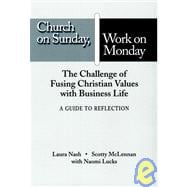| Part One: How to Use This Guide | |||||
|
3 | (18) | |||
|
5 | (5) | |||
|
10 | (5) | |||
|
15 | (2) | |||
|
17 | (1) | |||
|
17 | (1) | |||
|
18 | (3) | |||
| Part Two: Ideas for Reflection, Discussion, and Action | |||||
|
21 | (3) | |||
|
24 | (3) | |||
|
27 | (4) | |||
|
31 | (4) | |||
|
35 | (3) | |||
|
38 | (3) | |||
|
41 | (3) | |||
|
44 | (4) | |||
|
48 | (5) | |||
|
53 | (4) | |||
| The Authors | 57 |








